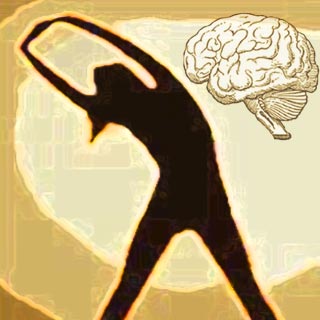 It’s long been known that exercise is a terrific way to handle stress and lift your mood. At the end of the day there is nothing like getting drenched in sweat, exhausted even, to make the cares of the day melt away.
It’s long been known that exercise is a terrific way to handle stress and lift your mood. At the end of the day there is nothing like getting drenched in sweat, exhausted even, to make the cares of the day melt away.
Turns out there might be more. Scientists at Princeton University have recently make a startling discovery: Exercise may have long-term stress reduction benefits as well. Researchers have known for a long time that exercise stimulates the production of new brain cells (neurons) but the how or if these neurons are different was not known. A recent study on rats presented at the annual meeting of the Society for Neuroscience showed the neurons “born from running appeared to be specifically buffered from exposure to stressful experience. The rates had created, through running, a brain that seemed biochemically, molecularly calm.” (The New York Times Magazine, November 22, 2009, “Stress Relief: Why Exercise Makes You Less Anxious.”)
“It looks more and more like the positive stress of exercise prepares cells and structures and pathways within the brain so that they are more equipped to handle stress in other forms…It’s pretty amazing, really….”
One caveat: Once won’t do it! The long-term benefits seem to kick in somewhere between three to six weeks of exercise and we are talking aerobic, endurance stuff here.
Closing Quotes:
“Lack of activity destroys the good condition of every human being, while movement and methodical physical exercise save it and preserve it.” — Plato (428 BC–348 BC), Greek philosopher, mathematician, writer and founder of the Academy in Athens. Along with his mentor, Socrates, and his student, Aristotle, Plato helped to lay the foundations of natural philosophy, science, and Western philosophy.
“Those who think they have not time for bodily exercise will sooner or later have to find time for illness.” — Edward Stanley (I tried to find a bio for good old Ed but turns out there are a lot of Edward Stanleys, most of them Earls of Derby of one lineage or another, the 13th, 14th, 17th, etc., so I suspect the author is one of them.)
“Exercise and application produce order in our affairs, health of body, cheerfulness of mind, and these make us precious to our friends.” — Thomas Jefferson (1743–1826), third President of the United States (1801–1809), principal author of the Declaration of Independence (1776), one of the more influential Founding Fathers for his promotion of the ideals of republicanism in the United States. Major events during his presidency include the Louisiana Purchase (1803) and the Lewis and Clark Expedition (1804–1806).


0 Comments